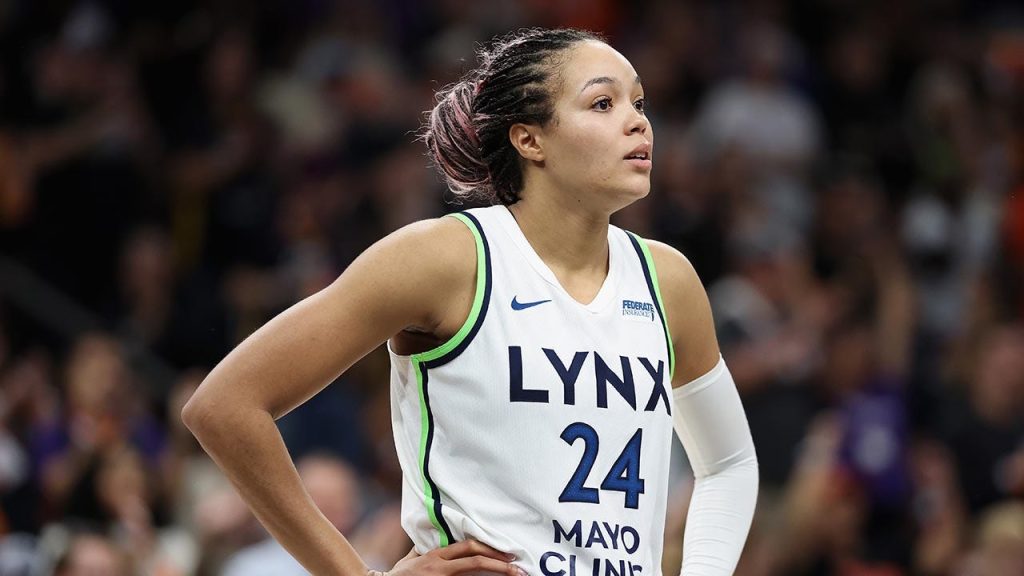WNBA Star Collier Calls for Accountability After Playoff Exit
In a powerful post-season statement, Phoenix Mercury’s victory over the Minnesota Lynx not only ended their playoff run but opened the door to a deeper conversation about the state of the WNBA. Following the Lynx’s elimination in Game 4 of the semifinals, Napheesa Collier, sidelined with an ankle injury sustained in Game 3, delivered a prepared statement that went far beyond the typical post-season reflections. The injury itself became a flashpoint of controversy after officials didn’t call a foul when Mercury forward Alyssa Thomas made contact with Collier—a decision that led to Lynx coach Cheryl Reeve’s ejection and subsequent fine for criticizing officials.
“The real threat to our league isn’t money. It isn’t ratings or even missed calls or even physical play. It’s the lack of accountability from the league office,” Collier stated firmly during her end-of-season media availability. As vice president of the WNBA Players Association and co-founder of Unrivaled, Collier emphasized that her concerns transcended the outcome of a single series. She pointed to a pattern of inconsistent officiating that has persisted throughout her career, suggesting that it undermines the integrity of the sport. “Whether the league cares about the health of the players is one thing, but to also not care about the product we put on the floor is truly self-sabotage,” she added, highlighting that players’ well-being and game quality should be paramount priorities.
Collier’s critique extended beyond officiating to touch on compensation issues that have long troubled the league. She recalled a February conversation with WNBA Commissioner Cathy Engelbert, where she raised concerns about salary structures, especially for high-profile rookies like Caitlin Clark, Angel Reese, and Paige Bueckers who generate substantial revenue while earning relatively modest salaries in their first four years. According to Collier, Engelbert’s response was that “Caitlin should be grateful she makes $16 million off the court, because without the platform that the WNBA gives her, she wouldn’t make anything.” This interaction, along with Engelbert allegedly telling players they “should be on their knees thanking their lucky stars for the media rights deal,” painted a concerning picture of the league’s leadership mindset in Collier’s view.
The commissioner quickly responded to Collier’s public statements, expressing disappointment in how their conversations were characterized. “I have the utmost respect for Napheesa Collier and for all the players in the WNBA,” Engelbert said in a statement. “Together, we have all worked tirelessly to transform this league. My focus remains on ensuring a bright future for the players and the WNBA, including collaborating on how we continue to elevate the game.” This exchange highlights the tension between players seeking greater agency and recognition and a league administration that feels it’s making progress in elevating the WNBA’s profile and sustainability.
The timing of this public disagreement is particularly significant as the league approaches collective bargaining negotiations. Collier, anticipating disciplinary action for her candid remarks, noted, “I’m sure that they will fine me. I mean, it seems like anything with free speech is fined now.” Her willingness to risk financial penalties underscores the depth of her conviction that fundamental changes are needed in how the league operates, particularly regarding player compensation and officiating standards. As one of the league’s most respected players, her decision to speak out carries substantial weight within the WNBA community.
What makes this situation particularly poignant is that it comes during a season of unprecedented growth for the WNBA. Television ratings have soared, attendance has increased, and mainstream media coverage has expanded dramatically. Yet Collier’s comments suggest that beneath this veneer of success, structural issues remain that could potentially limit the league’s long-term health and the welfare of its athletes. Her critique touches on a fundamental question: as the WNBA grows in popularity and revenue, how should that success translate to improved conditions, compensation, and respect for the players who make it possible?
As the WNBA Finals proceed without the Lynx, this conversation about accountability, respect, and the relationship between players and league leadership will continue to resonate. Collier’s statement serves as both a challenge to the status quo and an invitation to reimagine how the WNBA might evolve to better serve all stakeholders. The upcoming collective bargaining negotiations will reveal whether this moment of tension can transform into an opportunity for meaningful progress in addressing the concerns raised by one of the league’s most prominent voices. Whatever the outcome, Collier’s willingness to speak candidly about these issues has ensured that discussions about player welfare, fair compensation, and consistent officiating will remain at the forefront as the WNBA charts its future.


